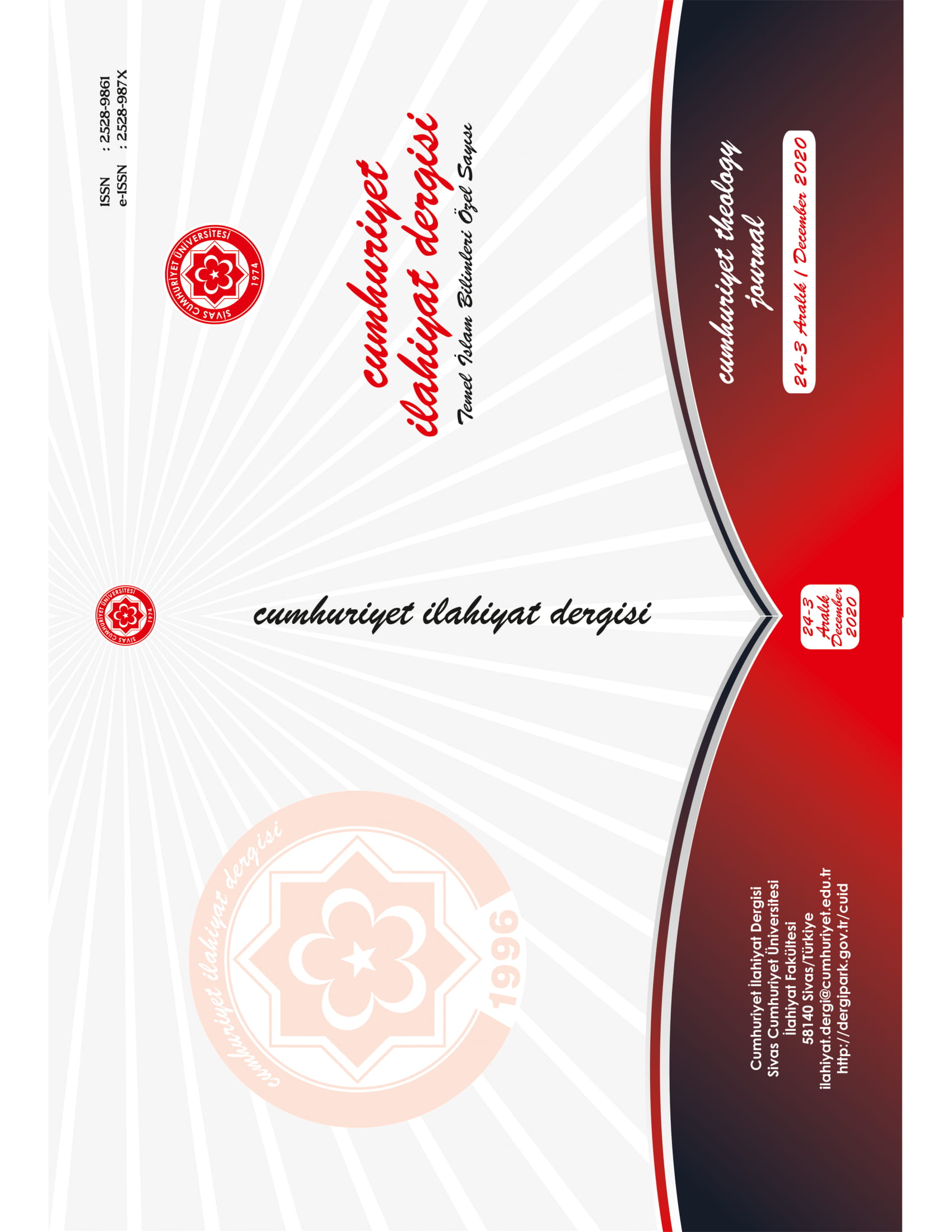Ahmed B. Hanbel’in el-Müsned’deki Bir Hadis İle İlgili Tavrı ve Değerlendirmesi
Aḥmad b. Ḥanbal's Attitude of a Ḥadith in al-Musnad and it’s Evaluation
Author(s): Hüseyin KahramanSubject(s): Islam studies
Published by: Cumhuriyet Üniversitesi İlahyat Fakültesi
Keywords: Ḥadith; Aḥmad b. Ḥanbal; Quraysh; al-Musnad; Ḥadith of Management;
Summary/Abstract: Aḥmad b. Ḥanbal (d. 241/855), during his illness which ended with his death, asked his son ʽAbdallāh to remove the following ḥadith from al-Musnad: “When the Messenger of Allah said "This group from the Quraysh will destroy the Ummah", they asked "What would you order us (in this case)?". He replied "If so people should stay away from them!" Aḥmad b. Ḥanbal thinks that this ḥadith contradicts other narrations. According to his son ʽAbdallāh, the narrations that this ḥadith contradict it is the hadiths that the Prophet ordered to obey the administrators and be patient with the mistakes caused by them. However, the scholars who came later made different evaluations about this attitude. According to one of these evaluations, Imam's attitude is that the ḥadith is contradictory, as it draws attention in its own statement, that is, it contradicts with other narrations that regulate people’s relationship with the administrators. This interpretation is important in terms of narrating the same ḥadith by famous ḥadith scholars like Bukhārī (d. 256/870) and Muslim (d. 261/875). Because, according to this interpretation, non-authentic narrations can be found in the works of Bukhārī and Muslim, al-Câmi‘u’s-saḥîḥ. However, these two authors claim that their books contain only authentic ḥadiths. However, the examinations made on both the narrator chain and its text show that the contradiction claim cannot be true. As a matter of fact, all four people who narrated the ḥadith were considered reliable by both narrator critics and Ahmet b. Hanbel. Thus Aḥmad b. Ḥanbal includes a large number of ḥadiths of these narrators in his al-Musnad. It is possible to say that the ḥadith is not contradictory in terms of text. For, dozens of hadiths similar to both the first and second sentences of the hadith were reported by Ahmed in al-Musnad. According to the second claim, the reason for Aḥmad b. Ḥanbal to take this ḥadith out of his book is political. According to this claim, Imam made such a request in order to get along well with the administration of the period. Because, in this period, Abbasid government ended the Mihna process, which had put the ḥadith scholars in great trouble, and began to pursue a softening policy against them. Aḥmad b. Ḥanbal also responded positively to the management's desire for reconciliation, and for this reason he wanted to remove the ḥadiths that ordered to take a hard attitude towards the cruel ruler. But this claim does not comply with Aḥmad b. Ḥanbal, because at that time he became a community leader thanks to his attitude towards power. According to the third comment on this issue, Aḥmad b. Ḥanbal's attitude towards this ḥadith is that it could be abused. As a matter of fact, Imam himself personally said that some of ahl al-bid‘ah brought this ḥadith as evidence and took harsh attitudes towards power. Essentially, we have other data that reinforce this final interpretation. As a matter of fact, Ahmet removed other hadiths that ordered the armed struggle against power from his book. As it is understood from this attitude, Aḥmad b. Ḥanbal does not want the actual and armed struggle against cruel rulers to cause chaos and mischief in society. So it can be said that Imam's attitude regarding the ḥadith in question is about the concerns in the relationship between society and the administrator. However, this anxiety concerns especially the second sentence that recommends that “people stay away from such administrators”. Because, during the period of Imam's life, some groups such as al-Mu‘tizilah caused social disintegration by using such ḥadiths as evidence. In short, in the case under study here, his concern about “contradicting other narrations” should be understood in light of the ideal administrator-society relationship he attempts to establish in his al-Musnad.
Journal: Cumhuriyet İlahiyat Dergisi
- Issue Year: 24/2020
- Issue No: 3
- Page Range: 973-991
- Page Count: 19
- Language: Turkish

